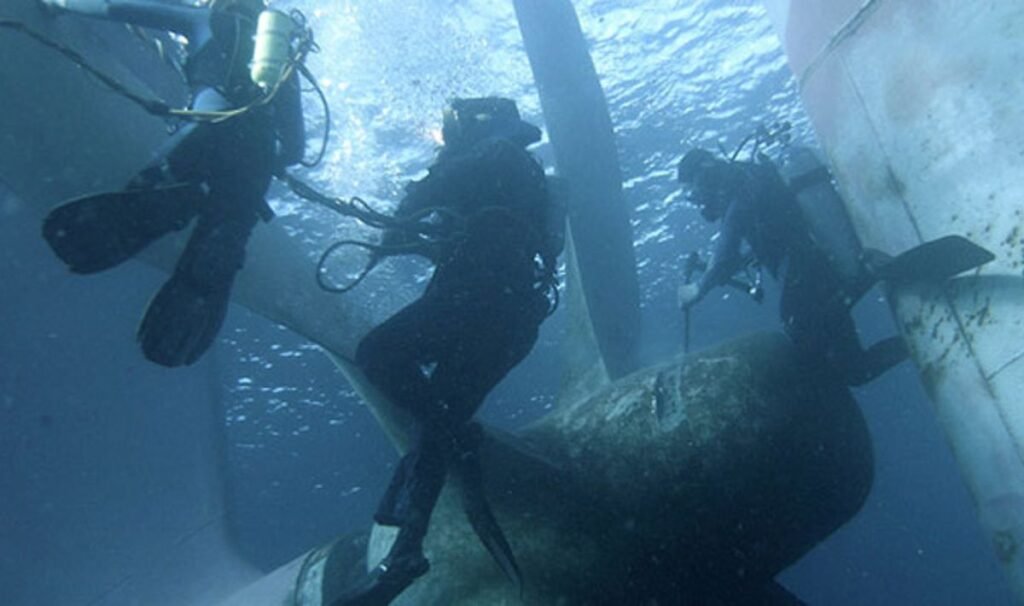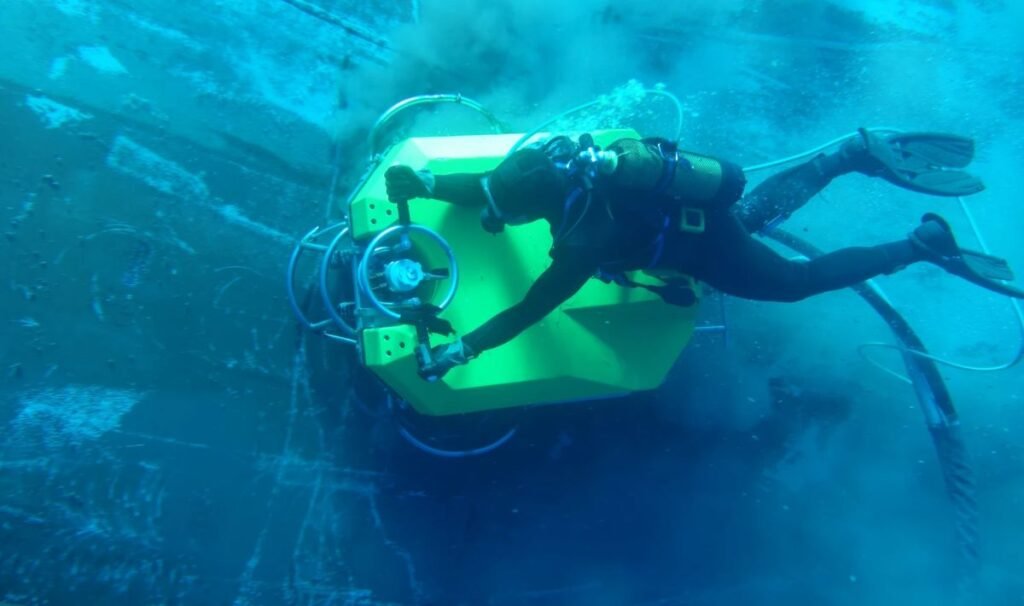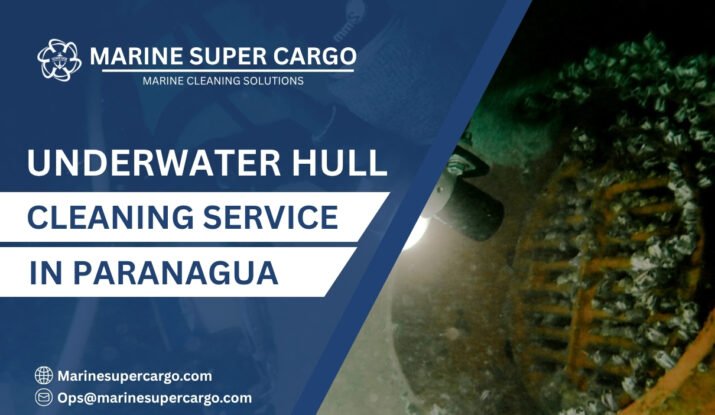Imagine your ship slicing through the emerald waters near Paranagua’s bustling port. On the surface, everything might look perfect, but what’s happening below the waterline can quietly sabotage your vessel’s performance. Marine growth like barnacles and algae cling to your hull, slowing you down, driving up fuel use, and risking costly fines or delays. That’s why underwater hull cleaning in Paranagua is vital for efficiency, compliance, and economic operation.
What Is Underwater Hull Cleaning in Paranagua?
Underwater hull cleaning in Paranagua means removing unwanted marine organisms, debris, and slime from the submerged parts of your ship while it’s still afloat. Instead of hauling your vessel out of the water—a complex and expensive task—professional divers or robotic machines scrub and polish your hull right in Paranagua’s port, often with zero disruption to your schedules.
Paranagua’s Unique Waters: Challenges and Opportunities
Paranagua, a major Brazilian gateway, is blessed with rich coastal currents and teeming marine life. Unfortunately, those same conditions make hull fouling happen lightning-fast here. Algae, barnacles, sun coral, and more thrive in these warm, nutrient-rich waters. For ship operators, the challenge is clear: biofouling happens faster and tougher in Paranagua than in many other places, demanding vigilant cleaning and advanced techniques.

Biofouling and Its Surprising Costs
Let’s get real: even a thin layer of slime adds drag, burning more fuel for every knot you travel. Marine experts estimate that a ship with a fouled hull can see up to a 10-30% increase in fuel consumption, slower speeds, and higher emissions. Multiply that by months at sea, and you’re talking serious money and environmental impact. That’s before you count the regulatory pressure and risk of transporting invasive species, both of which are under the microscope in Brazil today.
Methods of Underwater Hull Cleaning in Paranagua
Manual Cleaning by Professional Divers
Divers using brushes and scrapers remain a key solution for underwater hull cleaning in Paranagua. Specially trained teams target stubborn barnacles, thick algae mats, and even bioinvasive species like sun coral by hand for precise results, especially around tricky areas like propellers, gratings, and intakes.
Mechanical Brushes and Rotating Systems
For larger surfaces, powered rotary brushes make quick work of marine growth. These machines range from simple diver-held tools to full mechanical karts that cover more hull in a fraction of the time. By adjusting brush type—soft nylon for algae, stiffer bristles for barnacles—pros can clean thoroughly without harming your vessel’s expensive coatings.
ROVs and Robotic Innovations
Robotic hull crawlers are rapidly changing the game in Paranagua. These magnetic or suction-adhered robots roam your hull, scrub with brushes or high-pressure jets, and can clean 100–200 m²/h. They keep divers out of danger, reduce cleaning time, and often capture real-time video for documentation. Some robots, like the Magnetic Hull Crawler or HullWiper, even have vacuum or filtering systems to stop debris and invasive species from falling back into the water.
High-Pressure Jets and Eco-Friendly Technology
High-pressure jets (up to 1,000 bar) strip away fouling efficiently. The best systems, such as HullWiper, use controlled water pressure so your hull’s protective paint stays intact while only the slime and shells are removed. Eco-friendly methods like vacuum blast cleaning are also making waves—they don’t use harsh chemicals or dump waste back into Paranagua’s sensitive marine ecosystem.
Environmental Safety and Local Regulations
Brazil’s authorities, including those in Paranaguá, have tightened rules on hull cleaning to combat invasive species and water pollution. It’s no longer just about speed and savings: compliant underwater hull cleaning in Paranagua means:
- Capturing and properly disposing of debris and biofouling waste
- Careful selection of equipment to avoid paint or hull damage
- Following biosecurity protocols for sun coral and other invasive risks
Top ports like Porto de Santos have set high standards for environmentally responsible hull cleaning, serving as a benchmark for practices now being enforced in Paranaguá and across Brazil.
Finding the Right Service for Underwater Hull Cleaning in Paranagua
Certifications, Compliance, and Experience
Always choose certified teams experienced in Paranagua’s currents, marine life, and ever-changing rules. Leading companies deliver before-and-after inspection reports, are insured, and stay current on Brazilian (and international) maritime regulations.
Value-Added Services: Propeller Polishing, Inspections & More
Top-tier providers don’t stop at hull cleaning. They’ll polish your propellers for extra efficiency, clear entanglements, or inspect your hull with video or ROVs. Some even offer in-water repairs and emergency support—think of it as a one-stop shop for underwater excellence!
How Often Should Ships Undergo Hull Cleaning?
Here in Paranagua, fast growth rates mean cargo ships often need cleaning every 3–6 months, or even more often for vessels spending extended time at anchor. Inspection dives or ROV surveys between cleanings catch early fouling and let you schedule maintenance before fuel bills spike.
Costs and Returns: Is Underwater Hull Cleaning in Paranagua Worth It?
What’s the price of underwater hull cleaning in Paranagua? It depends on vessel size, fouling severity, and methods used (manual, mechanical, robotic). But one thing is certain: regular cleaning means big savings on fuel, fewer layup days, less risk of expensive paint repairs, and full compliance with tough regulations.
Operators who skip proper hull cleaning end up paying the price through lost efficiency, more frequent drydockings, or even costly regulatory penalties.

New Developments in Hull Maintenance Technology
Industry is moving forward:
- AI-driven hull robots track fouling and optimize cleaning patterns.
- Eco-friendly vacuum and filtration units prevent environmental harm.
- Digital inspection and reporting systems offer real-time visibility for shipowners and authorities.
- Integrated data and predictive analytics for smarter, scheduled maintenance.
Adopting these advances ensures your fleet leads the way in operational efficiency and environmental stewardship.
Conclusion: Smooth Sailing and Smart Saving in Paranagua
When it comes to underwater hull cleaning in Paranagua, a quick scrub isn’t enough. In these biodiverse waters, clean hulls are your ticket to faster trips, lower costs, and trouble-free port calls. Harness new tech, stay ahead of fouling, and work with certified local experts—your fuel tanks, balance sheets, and the bay’s precious ecosystems will thank you. Here’s to cleaner hulls and clearer horizons!
FAQ:
Q1. How often is underwater hull cleaning needed in Paranagua?
Most commercial ships benefit from cleaning every 3–6 months due to rapid marine growth in local waters.
Q2. Are robotic hull cleaners available in Paranagua?
Yes, advanced robots and ROVs are increasingly used for safer, more thorough hull cleaning, often with real-time video and debris capture.
Q3. Will hull cleaning damage my ship’s paint?
Modern techniques (especially with trained teams and the right brushes or water jets) are designed to protect your anti-fouling coatings while removing fouling.
Q4. Is debris from hull cleaning disposed of responsibly?
Top providers use vacuum systems and capture technology to keep debris and invasive species out of Paranagua’s sensitive waters, fully complying with biosecurity rules.
Q5. Can I request propeller polishing or inspections in the same service?
Absolutely! Many professional teams offer bundled services—including propeller polishing, underwater inspection, emergency cleaning, and even minor in-water repairs.


